Primitive Living as Metaphor
Adapted from Participating in Nature: Wilderness Survival and Primitive Living Skills

Here in Montana I practice and teach classes on primitive or stone age skills--which is to say, camping with little or no gear. We build shelters that are warm and comfortable without a sleeping bag or blanket. We start fires by rubbing sticks together. We harvest and use edible wild plants, make baskets, and tan hides--that sort of thing. Fundamentally, these are skills that allow us to discover nature by participating in nature. Instead of merely hiking through or camping in it, we can move in and become part of the process. It is an intimate way to learn about nature by using it. For instance, just the process of using plants for food, medicine, and materials causes a person to become more aware. You learn about the specific properties of each plant, and you learn about the communities of plants and animals around each plant. As you collect these wild plants you begin to notice different soil types, and how the soils affect the plants growing there. Thus stone age skills are a great hands-on way to interact and discover nature. Yet, primitive living is even more than that. Primitive living is a metaphor that teaches us about ourselves and the world we live in.
 A metaphor is often a story about life which is simplified into characters and settings of stereotypes and symbols. We learn simple lessons about life from fanciful stories about princes and princesses or Old Man Coyote. We may not be able to describe exactly what those lessons are or how they affect us, but the stories do nonetheless make change in our lives. In today's complex world, primitive living is like a metaphor, but it is better. Primitive living is a metaphor we participate in and act out. Life is simplified down to the bare essentials such as physical and mental well-being, shelter, warmth, clothing, water, and food. We go on an expedition to meet those needs with little more than our bare hands. As we quest to meet those needs we learn to observe, to think, to reach inside ourselves for new resources for dealing with challenging and unfamiliar situations. We build up our personal strengths, and at the same time we interact with and learn about the world around us. In a story we can only join a quest in our imaginations. But in primitive living, we physically leave the contemporary world. We journey into the world of primitive stone-age skills, and we return with knowledge, wisdom, and strength to enrich our lives in contemporary society.
A metaphor is often a story about life which is simplified into characters and settings of stereotypes and symbols. We learn simple lessons about life from fanciful stories about princes and princesses or Old Man Coyote. We may not be able to describe exactly what those lessons are or how they affect us, but the stories do nonetheless make change in our lives. In today's complex world, primitive living is like a metaphor, but it is better. Primitive living is a metaphor we participate in and act out. Life is simplified down to the bare essentials such as physical and mental well-being, shelter, warmth, clothing, water, and food. We go on an expedition to meet those needs with little more than our bare hands. As we quest to meet those needs we learn to observe, to think, to reach inside ourselves for new resources for dealing with challenging and unfamiliar situations. We build up our personal strengths, and at the same time we interact with and learn about the world around us. In a story we can only join a quest in our imaginations. But in primitive living, we physically leave the contemporary world. We journey into the world of primitive stone-age skills, and we return with knowledge, wisdom, and strength to enrich our lives in contemporary society.
 I experienced the power of this "participatory metaphor" when I was sixteen. I went on a twenty-six day expedition with an outdoors school, where we hiked 250 miles, ate little, and generally endured a lot. The personal strengths, the wisdom, and the ability to persevere that I brought back from that "quest" have helped me to be successful in contemporary life more than any other single thing I have done.
I experienced the power of this "participatory metaphor" when I was sixteen. I went on a twenty-six day expedition with an outdoors school, where we hiked 250 miles, ate little, and generally endured a lot. The personal strengths, the wisdom, and the ability to persevere that I brought back from that "quest" have helped me to be successful in contemporary life more than any other single thing I have done.
In a similar way, my wife and I went on a "quest" together, an adventure where we started in Pony and walked five hundred miles across Montana to Fort Union on the North Dakota border. That was a year before we were married. At the time we could not give a definitive answer as to why we were doing it. But looking back, I would say we were testing and building our relationship and our abilities to work together towards common goals, before formally committing ourselves to a long-term relationship.
Thus, primitive living is a metaphor that brings out our inner resources. At the same time, it is also a metaphor that teaches us about the resources of the earth as well. You see, the person who carries in a lot of gear, from tents, to propane stoves, with the intent of living "no-impact", is, metaphorically speaking, living a lie. Such a person may claim to practice no-impact camping, but the truth is, the resources they pack in had to come from somewhere.
 Our contemporary lives have become so removed from hand-to-mouth survival, that we sometimes delude ourselves into thinking our items of survival come from the store, rather than from nature. We think of ourselves as being somehow separate from nature. We think we can draw lines on the map and separate "wilderness" from "non-wilderness", but really, there is only one wilderness and only one ecosystem, and we are part of it. Like the deer eating grass, or the robin bringing materials back to build a nest, we all must use the resources of the earth to maintain our own survival. This is true whether we live in an apartment building in the city, or in a wickiup in the woods.
Our contemporary lives have become so removed from hand-to-mouth survival, that we sometimes delude ourselves into thinking our items of survival come from the store, rather than from nature. We think of ourselves as being somehow separate from nature. We think we can draw lines on the map and separate "wilderness" from "non-wilderness", but really, there is only one wilderness and only one ecosystem, and we are part of it. Like the deer eating grass, or the robin bringing materials back to build a nest, we all must use the resources of the earth to maintain our own survival. This is true whether we live in an apartment building in the city, or in a wickiup in the woods.
Primitive living allows us to practice living on a model scale. By "living" I mean that process of procuring our needs for physical and mental well-being, including such things as shelter, fire or energy, water, and vegetable or animal resources. In primitive living we are faced with these needs as realities we must meet. We are faced with the realization that in order for our lives to go onward, we must take from the world around us; like the coyote stalking a mouse, we must kill and use to survive. It is too easy to forget that in the contemporary world. We think resources come from the store, and we forget that there are impacts and consequences, throughout the ecosystem, from our every purchase, our every decision. In primitive living we face those consequences directly. We can see the effect of our needing to eat causing the loss of life of a plant or an animal. We can sense that by picking the berries from the bushes we may be taking someone else's meal. Primitive living is a metaphor that gives us an awareness of the true costs of living, no matter where we are.
 The metaphor of primitive living can also teach us that it may be okay to take from the earth; that perhaps we do not need to feel guilty about our actions, only aware of them. The deer takes from the ecosystem and causes surprising impacts; it's presence causes successional shifts throughout plant and animal communities, destroying habitat for some and creating it for others. Similarly, the presence of humankind living primitive, today or yesterday, creates all kinds of havoc in the ecosystem. Groups of primitive peoples rewrote the ecosystem daily as they hunted and gathered for their needs, or torched the brush to drive the game out. Even an individual person displaces habitat, competes for food, and forces the animals to take new trails, all influencing successional communities. Perhaps our contemporary cities are not so different. They are still wilderness; only different successional plant and animal communities are favored there. Primitive living, as a metaphor, can teach us that, like a bluebird eating a fly, perhaps it is okay to take from and alter the ecosystem. It is neither good nor bad, it is simply reality.
The metaphor of primitive living can also teach us that it may be okay to take from the earth; that perhaps we do not need to feel guilty about our actions, only aware of them. The deer takes from the ecosystem and causes surprising impacts; it's presence causes successional shifts throughout plant and animal communities, destroying habitat for some and creating it for others. Similarly, the presence of humankind living primitive, today or yesterday, creates all kinds of havoc in the ecosystem. Groups of primitive peoples rewrote the ecosystem daily as they hunted and gathered for their needs, or torched the brush to drive the game out. Even an individual person displaces habitat, competes for food, and forces the animals to take new trails, all influencing successional communities. Perhaps our contemporary cities are not so different. They are still wilderness; only different successional plant and animal communities are favored there. Primitive living, as a metaphor, can teach us that, like a bluebird eating a fly, perhaps it is okay to take from and alter the ecosystem. It is neither good nor bad, it is simply reality.
Of course, primitive living also reminds us that our link to the ecosystem goes both ways. We are participants in the ecosystem and therefore we have no choice but to take from it, and we will inevitably alter it, but also, for our own survival, we must maintain it. Our actions affect successional communities of plants and animals in the ecosystem, and we are included in those communities. Succession will forever be in a state of flux, for as long as life exists. Nature will continue on, ever changing, destroying habitats, and creating them. In the face of global climate change and ozone depletion, it is important that we consider what successional changes may mean for our own species.
Primitive living is a metaphor for living. It brings us face to face with our own survival. It brings out our inner resources for dealing with challenging situations, and it reminds us, that no matter what technologies we have, we are still in integral component of the ecosystem. Primitive living is a model for living that gives us the basic foundations, the very laws of nature, upon which all of our solutions, in primitive and contemporary living, must be built.
Adapted from Participating in Nature: Wilderness Survival and Primitive Living Skills
Hi Tom,
I was browsing through the bookstore at Northern Arizona University and
saw your book "Participating in Nature" and picked up a copy. I have heard about it through the abo-grapevine and seen it on your site, but hadn't checked it out yet.
Outstanding book! I was particularly impressed by the fact that you go beyond presenting skills and share a lot of your own life-stories and anecdotes which added a humanistic side to the book (rather than simply being a how-to book like many others). The part at the end on how you got into primitive/survival skills was refreshing since I think that some authors have presented themselves as coming out of the womb knowing how to make a hand-drill fire.
A very well-rounded book that I plan on using in my own courses. I just wanted to say, Well Done. Hope you have a good summer. Maybe I'll see you at Rabbitstick.
--Tony Nester
Ancient Pathways
Flagstaff, Arizona



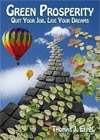
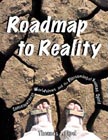
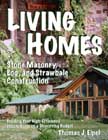
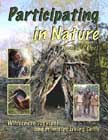
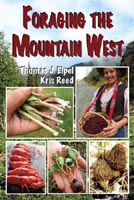
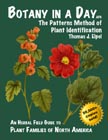
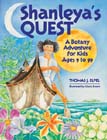
 A metaphor is often a story about life which is simplified into characters and settings of stereotypes and symbols. We learn simple lessons about life from fanciful stories about princes and princesses or Old Man Coyote. We may not be able to describe exactly what those lessons are or how they affect us, but the stories do nonetheless make change in our lives. In today's complex world, primitive living is like a metaphor, but it is better. Primitive living is a metaphor we participate in and act out. Life is simplified down to the bare essentials such as physical and mental well-being, shelter, warmth, clothing, water, and food. We go on an expedition to meet those needs with little more than our bare hands. As we quest to meet those needs we learn to observe, to think, to reach inside ourselves for new resources for dealing with challenging and unfamiliar situations. We build up our personal strengths, and at the same time we interact with and learn about the world around us. In a story we can only join a quest in our imaginations. But in primitive living, we physically leave the contemporary world. We journey into the world of primitive stone-age skills, and we return with knowledge, wisdom, and strength to enrich our lives in contemporary society.
A metaphor is often a story about life which is simplified into characters and settings of stereotypes and symbols. We learn simple lessons about life from fanciful stories about princes and princesses or Old Man Coyote. We may not be able to describe exactly what those lessons are or how they affect us, but the stories do nonetheless make change in our lives. In today's complex world, primitive living is like a metaphor, but it is better. Primitive living is a metaphor we participate in and act out. Life is simplified down to the bare essentials such as physical and mental well-being, shelter, warmth, clothing, water, and food. We go on an expedition to meet those needs with little more than our bare hands. As we quest to meet those needs we learn to observe, to think, to reach inside ourselves for new resources for dealing with challenging and unfamiliar situations. We build up our personal strengths, and at the same time we interact with and learn about the world around us. In a story we can only join a quest in our imaginations. But in primitive living, we physically leave the contemporary world. We journey into the world of primitive stone-age skills, and we return with knowledge, wisdom, and strength to enrich our lives in contemporary society.  I experienced the power of this "participatory metaphor" when I was sixteen. I went on a twenty-six day expedition with an outdoors school, where we hiked 250 miles, ate little, and generally endured a lot. The personal strengths, the wisdom, and the ability to persevere that I brought back from that "quest" have helped me to be successful in contemporary life more than any other single thing I have done.
I experienced the power of this "participatory metaphor" when I was sixteen. I went on a twenty-six day expedition with an outdoors school, where we hiked 250 miles, ate little, and generally endured a lot. The personal strengths, the wisdom, and the ability to persevere that I brought back from that "quest" have helped me to be successful in contemporary life more than any other single thing I have done.  Our contemporary lives have become so removed from hand-to-mouth survival, that we sometimes delude ourselves into thinking our items of survival come from the store, rather than from nature. We think of ourselves as being somehow separate from nature. We think we can draw lines on the map and separate "wilderness" from "non-wilderness", but really, there is only one wilderness and only one ecosystem, and we are part of it. Like the deer eating grass, or the robin bringing materials back to build a nest, we all must use the resources of the earth to maintain our own survival. This is true whether we live in an apartment building in the city, or in a wickiup in the woods.
Our contemporary lives have become so removed from hand-to-mouth survival, that we sometimes delude ourselves into thinking our items of survival come from the store, rather than from nature. We think of ourselves as being somehow separate from nature. We think we can draw lines on the map and separate "wilderness" from "non-wilderness", but really, there is only one wilderness and only one ecosystem, and we are part of it. Like the deer eating grass, or the robin bringing materials back to build a nest, we all must use the resources of the earth to maintain our own survival. This is true whether we live in an apartment building in the city, or in a wickiup in the woods.  The metaphor of primitive living can also teach us that it may be okay to take from the earth; that perhaps we do not need to feel guilty about our actions, only aware of them. The deer takes from the ecosystem and causes surprising impacts; it's presence causes successional shifts throughout plant and animal communities, destroying habitat for some and creating it for others. Similarly, the presence of humankind living primitive, today or yesterday, creates all kinds of havoc in the ecosystem. Groups of primitive peoples rewrote the ecosystem daily as they hunted and gathered for their needs, or torched the brush to drive the game out. Even an individual person displaces habitat, competes for food, and forces the animals to take new trails, all influencing successional communities. Perhaps our contemporary cities are not so different. They are still wilderness; only different successional plant and animal communities are favored there. Primitive living, as a metaphor, can teach us that, like a bluebird eating a fly, perhaps it is okay to take from and alter the ecosystem. It is neither good nor bad, it is simply reality.
The metaphor of primitive living can also teach us that it may be okay to take from the earth; that perhaps we do not need to feel guilty about our actions, only aware of them. The deer takes from the ecosystem and causes surprising impacts; it's presence causes successional shifts throughout plant and animal communities, destroying habitat for some and creating it for others. Similarly, the presence of humankind living primitive, today or yesterday, creates all kinds of havoc in the ecosystem. Groups of primitive peoples rewrote the ecosystem daily as they hunted and gathered for their needs, or torched the brush to drive the game out. Even an individual person displaces habitat, competes for food, and forces the animals to take new trails, all influencing successional communities. Perhaps our contemporary cities are not so different. They are still wilderness; only different successional plant and animal communities are favored there. Primitive living, as a metaphor, can teach us that, like a bluebird eating a fly, perhaps it is okay to take from and alter the ecosystem. It is neither good nor bad, it is simply reality.